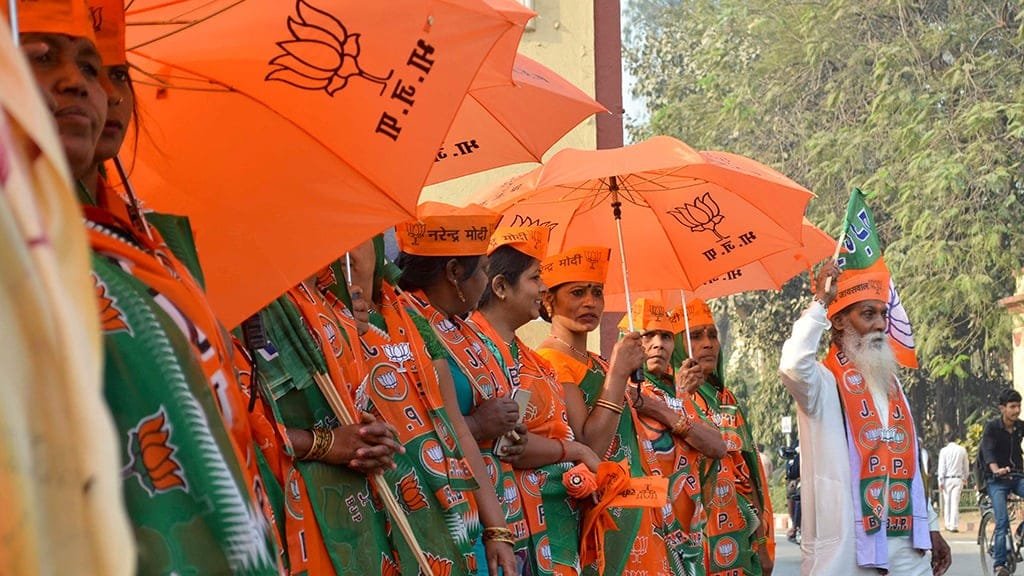It seems that the massive victories of the BJP in the Maharashtra State Assembly elections and the UP bye elections have reversed its apparently downward trend after the parliamentary elections in which BJP seats in the Lok Sabha were reduced from 303 to 240, thus losing its majority in the House, and surviving in power only with the aid of some allies.
https://www.punjabtodaynews.com/bjps-triumph-in-maharashtra-what-drives-indian-voters
Now with the above victories, as well as its victory in Haryana, the BJP fortunes seem to have been restored. Consequently it has decided to up the ante, by stoking the communal fire all around.
What happened in Sambhal in UP is a portend of the times to come
A local court ordered a survey of the Jama Masjid in Sambhal on a complaint of some Hindus that there was a Hindu temple on the site of the mosque, which was destroyed by Muslims in the Mughal or pre-Mughal era, and a mosque built on its site there
The Places of Worship Act, 1991 was enacted by the Indian Parliament stating that the religious character of a structure as on 15th August cannot be changed.
In other words, even if a Hindu temple had been converted into a mosque, but this was done prior to 15.8.47, the structure cannot be reconverted into a Hindu temple. It is only where the conversion was done after 15.8.47 that it can be restored as a Hindu temple.
The purpose of the law was to put a quietus to such disputes. There are tens of thousands of mosques in India, and about each of them it can be claimed that they were built after destroying Hindu temples. Where will this take us ? It is true that some Hindu temples were converted into mosques, but we have to forget the past and move forward, and that was the intention of the Places of Worship Act, 1991.
However, despite this clear law many courts are turning a blind eye to it and ordering surveys of mosques, which would may lead to its destruction, as it happened to Babri Masjid, or conversion of a portion of a mosque into a Hindu temple, as it happened to the basement of the Gyanvapi mosque.
The recent order by a court in Sambhal, UP, is in the same direction, and has led to violence :
How could the court pass an order for survey when the suit itself was not maintainable in view of the Places of Worship Act ?
It is deeply regrettable that courts are simply ignoring that Act and passing orders for survey of the mosque, as it also happened to the Shahi Mosque in Mathura. It seems that some judges are no longer functioning as they are meant to function i. e. in a neutral, impartial and independent manner, but have become complicit with the ruling party in the Center.
In my two interviews by the eminent lawyer and politician Kapil Sibal I said that when a matter relating to the Gyanvapi mosque in Varanasi was before Justice Chandrachud he should have held that the suit itself was not maintainable in view of the Places of Worship Act, and that would have put a quietus to all similar disputes relating to many mosques in the country. But Chandrachud, who was then not CJI probably thought that if he passed such an order the BJP government may be displeased and supersede him. So instead of passing such an order he merely said that the District Court should consider the plea
The beneficiary of inciting communal tension in India is the BJP. This party claims to represent all Hindus in India, who are 80% of the country’s population. But Hindus are divided on caste lines. The solid supporters of the BJP are the Hindu upper castes ( Brahmins, Rajputs, Vaishyas, Bhumihars, etc) but these collectively make up only 18-20% of the population in many states, which is not enough to win an election.
But when communal passions are inflamed. most Hindus tend to unite ( as during the Ram Janmabhoomi agitation led by Advani ). This gets the BJP the votes it needs to win elections.
So what happened in Sambhal and earlier in Bahraich, is likely to be repeated endlessly.
This seems to be the unfortunate fate of India in the near future



